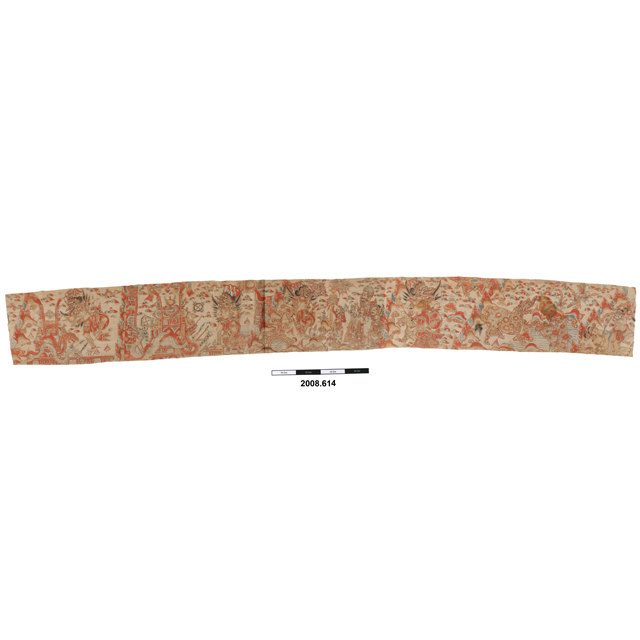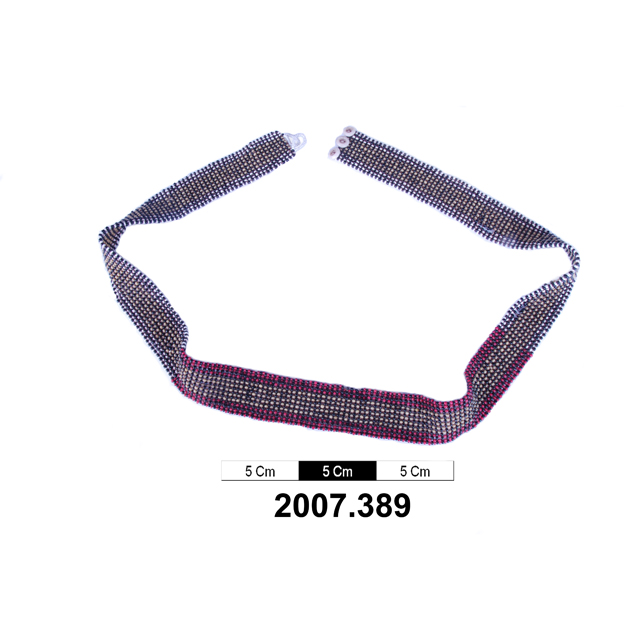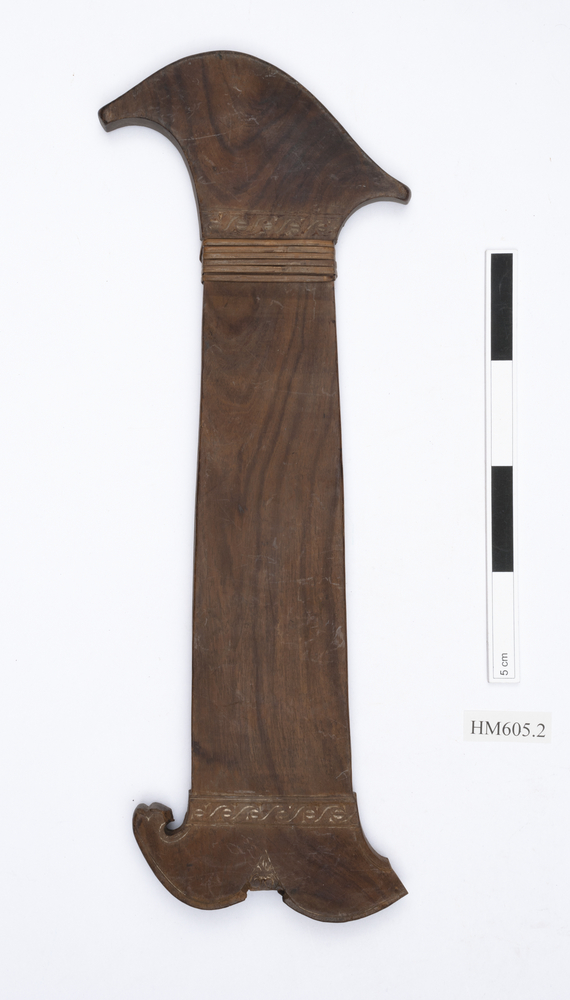
Section of temple hanging, ider-ider, painted in Kamasan style on cloth. Depicts a scene from the early life of Garuda. The story depicted is as follows: Garuda’s mother was Dewi Nata, his father Begawan Kasyapa, who had many wives. One of them, Dewi Kadru, gave birth to a hundred snakes. Dewi Nata gave birth to just two, including Garduda. Dewi Nata had lost a bet with Dewi Kadru, and become her slave. In order to release her from this, Garuda had to go to heaven to steal tirtha amertha, the elixir of life, from the gods and give it to the snakes. To the left of this section of the painting Garuda is seen with the tirtha amertha container; the two dragons who guard the amertha for the gods are to his left. Moving to the right we see the tirtha amertha container in its rightful place being guarded by the two dragons. The next scene to the right is a scene with Garuda ripping up a tree, which he takes as a ‘bekal’, or to shelter his head, to heaven, watched by a priest and family. Garuda needed to eat unusual things in order to power himself up to heaven.
used to hang around the eaves of shrines in the family temple or pavilions in the temple grounds especially during Galungan.






